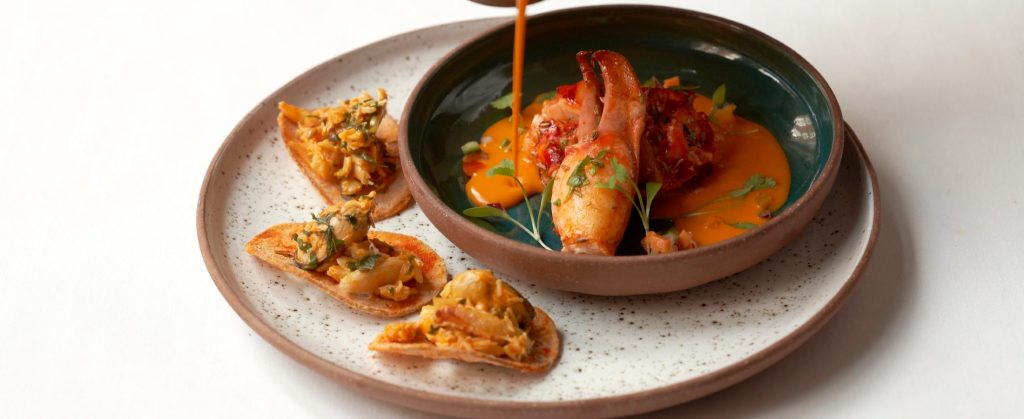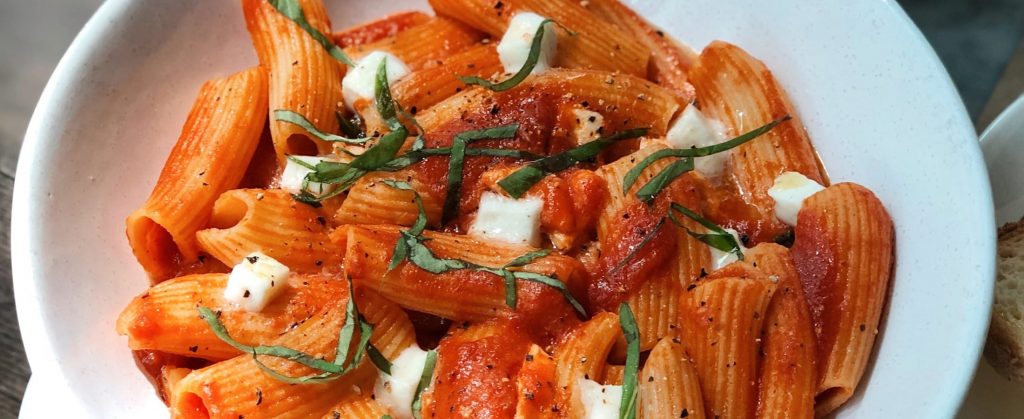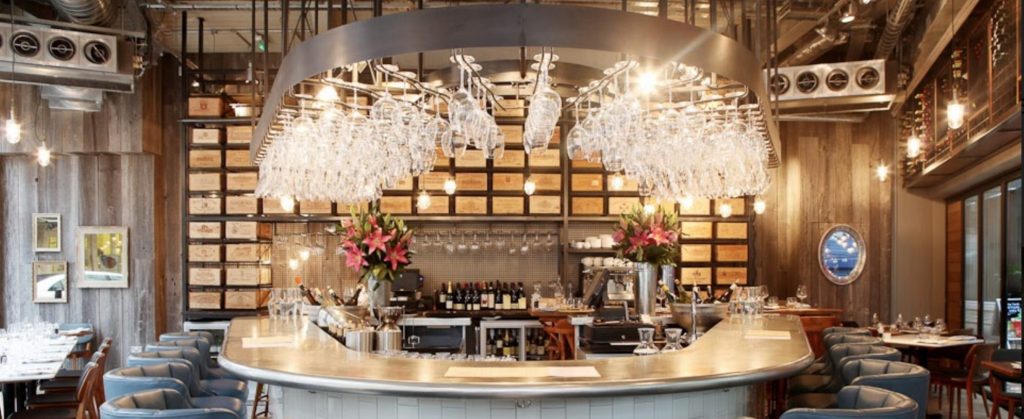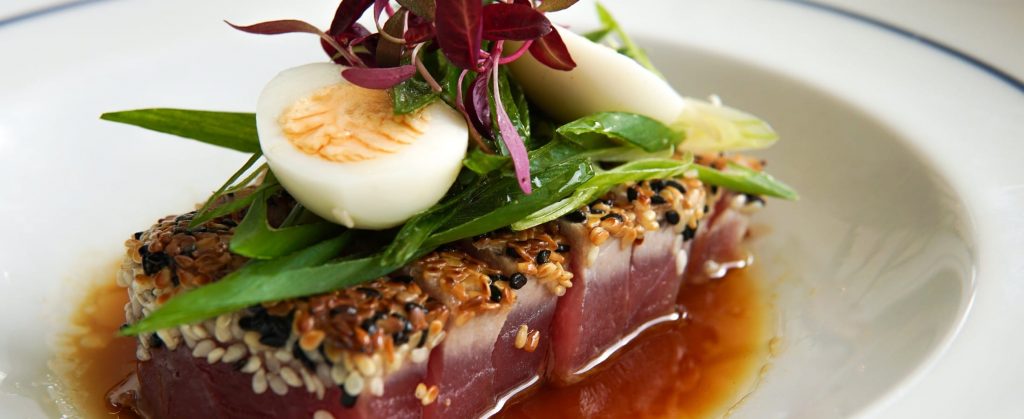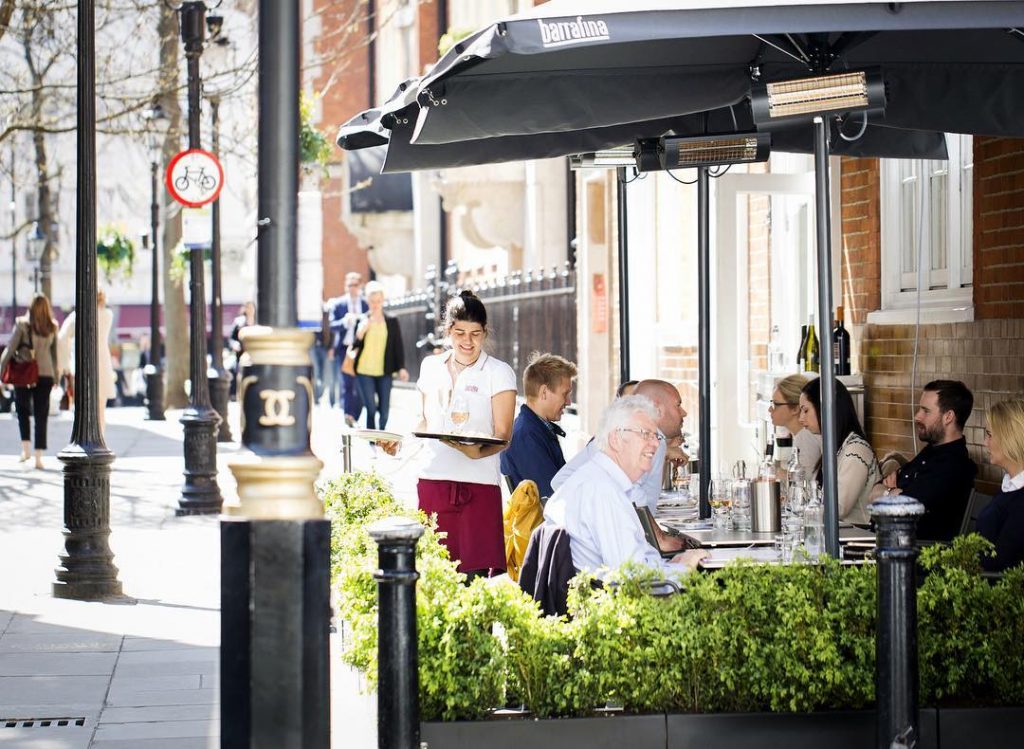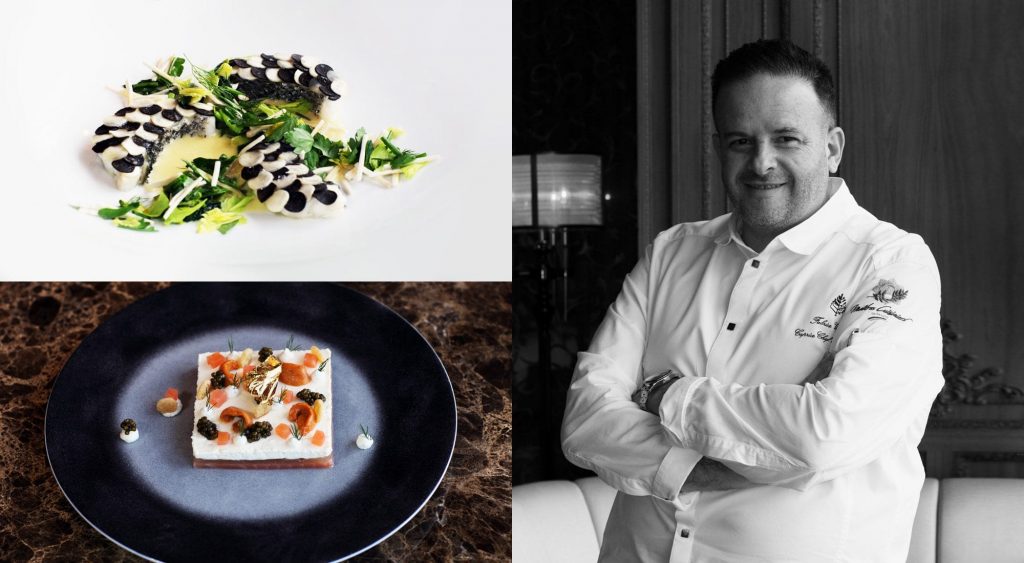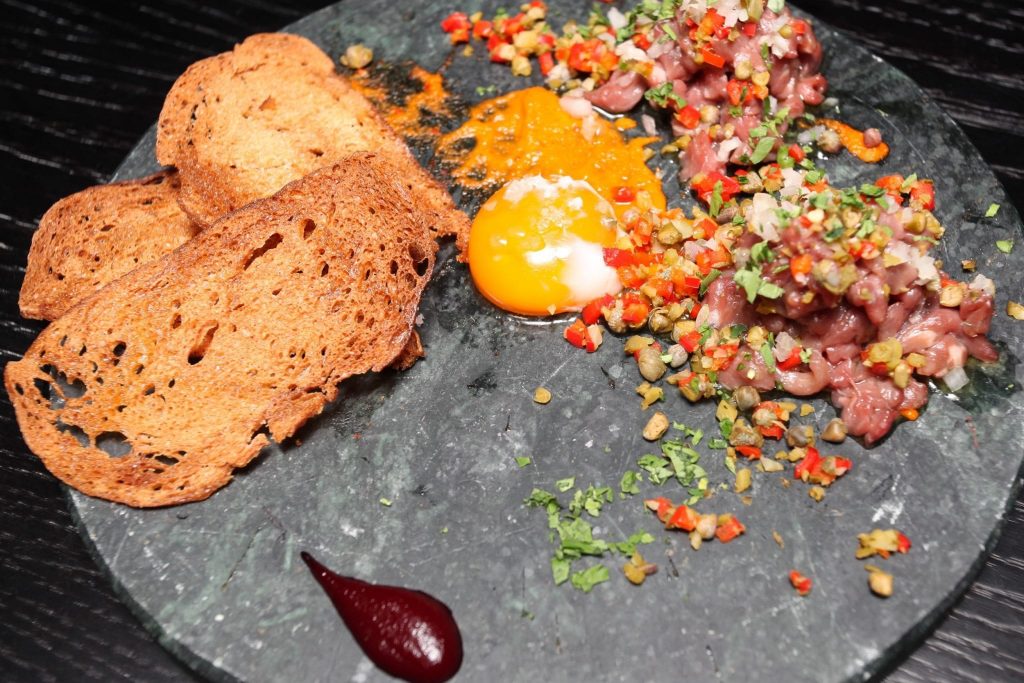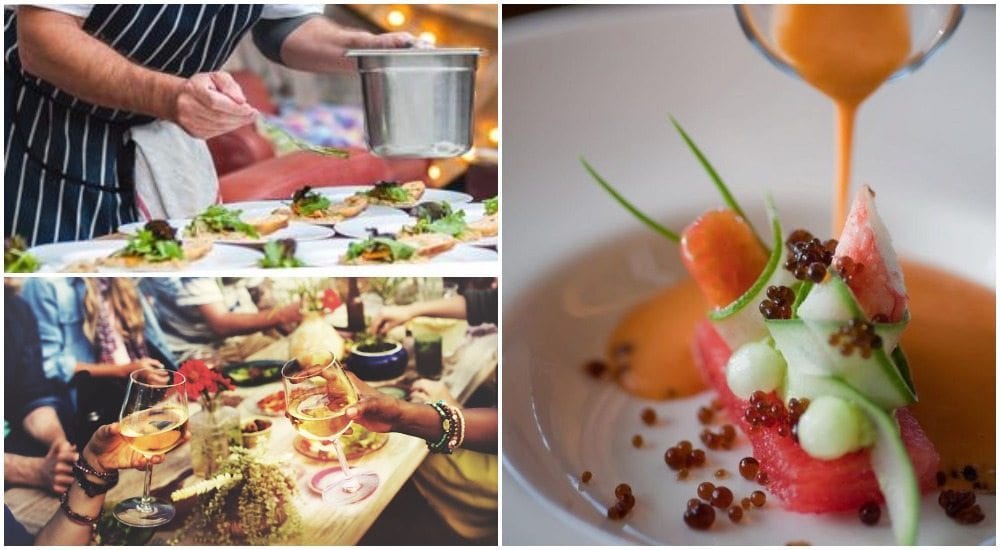Young and ambitious, 33 year old Jeremy Chan opened and became Head Chef of Ikoyi by the age of 30, with the restaurant gaining its first Michelin star within a year. Together with his close friend and co-owner Iré Hassan-Odukale, Ikoyi seems to be going from one strength to the next. And most importantly, the food is fantastic.
The Sybarite spoke to Jeremy on Ikoyi’s cuisine, how COVID has changed the way he works, Devonshire lobster and what he thinks of making plans for the future.
On his love for cooking
I started cooking when I was 26. I was living in Spain and fell in love with produce at food markets and the food culture of Spain. This when I first started considering cooking as a job as I was really enjoying cooking at home and I realised it was something that took up a lot of my mental energy. I started thinking about getting a job in a kitchen when I was in Spain and then I moved to London for another job – that’s when i decided to leave my career in finance to start my career in cooking. I basically worked my way through a series of different restaurants, through chefs that I respected and regarded as leading at the time. I did constantly feel like I was behind, that I was too old to be starting this profession. However, now that I look back I see that I was definitely still pretty young at 26. I really just went for it quickly, within 4 years we had opened Ikoyi and we had a Michelin star within a year of opening – which is crazily fast having only been cooking for four years and having not that much experience. I do believe other life experiences can be just as important as cooking experience – business acumen, common sense, world views, ability to understand culture and putting together a business plan – these are all so important too.
On being young and starting his own business
Iré and I put together Ikoyi from scratch, with no experience in starting a restaurant – including designing the kitchen, interiors, sourcing everything, setting up suppliers. We had never done anything like it before but we did it because I believe that when you want to do something, you put your mind to it you have to go for it. I wouldn’t say it was tough, because we just dove in head first, and if we were unsure of anything, we asked questions, spoke to people in the industry etc. It was a massive learning curve and we were just extremely ambitious. I didn’t like being told that we didn’t have enough experience and that we were young. I think it’s patronising when older people with 20 years experience speak to the next generation that way. Oftentimes, people don’t take into regard raw ability or intelligence or other qualities that come into play. Young people in the hospitality industry nowadays have great business plans and these should not be ignored due to lack of experience. And the hospitality industry is changing, in terms of becoming younger. I knew exactly what I wanted the restaurant to look like, what I wanted the food to taste like, what the interior should look like. Physically the restaurant has definitely turned out how I saw that vision. Now three years later, now that I am older, I might think about redesigning things or moving to a bigger space. But all in due course.

On his childhood influences
I grew up in Hong Kong, which has a vibrant food culture. This had a big influence on my way of thinking about food. I believe the way you express yourself around food shows your cultural origins and I have been exposed to such a diverse group of people in my life, so many cultures and nationalities, and I think that shows in my cooking. I think the people you surround yourself with influences the food that you cook.
On opening Ikoyi with Iré
I have known Iré for about 18 years. As you get older, I find the friends that remain friends in your late 20s to early 30s are those that share the same life view, and Iré is one of those friends. We started discussing our passion for food and opening a food business about 10 years ago and it was a spark and passion we clearly shared. And things blossomed from there. We started cooking for friends and Iré suggested we open a restaurant. And then it quickly snowballed – we started doing events, looking for properties, doing pop ups, doing private dinners, designing our branding, putting together our ideas and philosophy. It was a pretty brutal two years trying to set this all up, but we got there in the end.
On the Ikoyi cuisine
I do not think I have actually landed on the cuisine of Ikoyi – and that’s what I love about it. I don’t want to make anything that people can obviously relate to, that they have tasted before. I want to make something new and original. The food at Ikoyi is a subjective inspiration about cuisine. There is of course a connection to West Africa, through Iré, but I don’t consider it a West African restaurant. I understand that it can be annoying to the diner when they expect the cuisine to be West African, even though we have made it explicitly clear it is not. There are no direct references in the food, I want it to be completely original. I want the dishes to be original and the techniques and flavours to be new to people. I don’t want someone to come from Nigeria and look out for food that tastes exactly like the Nigerian food they grew up on – it simply won’t be that. I also don’t want to call the cuisine anything because I feel like when you label something you create limits and put it in a box – I want the food at Ikoyi to be ever evolving. The initial concept was to start a Nigerian restaurant but as the chef, not knowing enough about Nigerian cuisine, I felt it would not be my place and I do not want to pretend to cook something that I do not know – it is not for me to recreate and claim to show London what Nigerian food is about. It is not my heritage and I cannot put my soul on a plate in that way.
So we changed the restaurant to an ingredient focused restaurant from that region, from West Africa. Some people like that and some people get a bit upset, but we are ok with that.

On Noma
My time at Noma was really interesting because it is such an ambitious restaurant, a world leading restaurant. It was insightful as I want Ikoyi to be a world known restaurant and to attract that number of people you need to have great products and originality and Noma definitely showed me what it takes to do that. I didn’t want to do what they are doing but I wanted to see their work ethic, organisation, discipline and work culture involved, so that was very interesting to learn. I learnt a lot of technical things too, and how to think outside the box with obscure ingredients, such as forage and herbs. They showed the importance of using these ingredients and in turn started a whole food movement, one that a lot of chefs have adopted and which has influenced the way a lot of people cook.
On the effect the pandemic has had on him as Head Chef of Ikoyi
The pandemic has made me a bit defiant and even more hard working than I was before, as I am not willing to let this pandemic ruin my business, for my employees to lose their work or for the restaurant to lose the momentum it had pre-pandemic – we have only been around for three years! The pandemic definitely made me up the gears, and hold onto things even more because I realise this is such a difficult time, so many people are losing their businesses, jobs, money, so many chefs out of jobs. And you see less and less boundary-pushing, unique restaurants surviving, and really talented chefs having to move to chains because top restaurants in the world are closing. This whole situation is making it so much harder for ambitious young cooks to find jobs. So we are really lucky to be open and be able to employ people. Keeping the business a success, keeping the restaurant, keeping our employees, keeping the customers happy and excited – these are absolutely my driving forces during this whole pandemic. It has been so hard. We are in such an odd location, no one sees us, so if you don’t know about Ikoyi you wouldn’t come by it. On top of that, it is really hard to explain to someone who just walks in exactly what we do. The menu changes so much, we change it as much as our suppliers and farms change seasonality, so that could be weekly. Lobster one day, seabass the next – we base our menu around fresh produce.
On adapting to ever changing covid restrictions
We have had to change our format completely. Now, after 6pm, we only offer the tasting menu. If you want the order from the a la carte menu you must come before 6. This is our way of combating the loss of two hours service due to the current restrictions – it has been a loss of income, guest experience, strain on service – so we had to compromise. We never wanted to do an a la carte menu anyway, but we did it to give more flexibility to the diner, but it doesn’t really work for such a small restaurant with really high overheads. And in my opinion, you aren’t getting the full Ikoyi experience if you do order a la carte as we specialise in our tasting menu because it features the best produce we have at the moment. An a la carte menu calls for so many ingredients to constantly be in stock that might not be as perfect quality as we might want – that is not the Ikoyi way. The tasting menu is the best version of what we do. It was so frustrating seeing people leave at 9:55 not having finished their food – the tasting menu gives us control over the timing and ensures people can leave having had a really good meal and the full experience. It is disheartening to work so hard to get to a certain level but then to have to kick diners out, we hate it.

On his future plans
Honestly, there is no plan, other than getting better every single day, improving the experience for our guests and learning more about cooking every single day. We do not want to dilute the quality of Ikoyi by opening more restaurants, and I am not in this to be a big restaurateur, I am here to learn about food daily and make exciting dishes from what I learn. If there was the opportunity to move to a bigger place, that’s something we could think about but it isn’t a priority. I don’t really think about the long-term future, I think about tomorrow, I think about what fish is coming in tomorrow, what is in season, what are we cooking with tomorrow – that is what matters to me.
On his (current) favourite dish
The lobster we have at the moment is amazing. This lobster is from Devon, it is native to the UK and is incredibly red. It has a really rich diet of shellfish and other lobster, the water in which it grows is really clean and biodiverse, so this lobster is absolutely exceptional. But my favourites change regularly, all depending on seasonality.
On getting a Michelin star
When we received our star, I felt like we were still slightly misunderstood by customers and journalists, but I knew in my heart we were doing something special. It was honestly all a bit of a haze, as we had just been working so hard for two years to set everything up. I was thinking about this this morning actually, Michelin is a very westernised concept – how can they evaluate technique that is new and not within the traditional sphere of classical western cooking and how are they able to evaluate us today? As what we are doing is unprecedented, and very new. I think it is an amazing accolade and we are so grateful but my aim is just to focus on working with the freshest produce and making the restaurant busy. I find that if you focus too much on accolades and awards, you lose sight of the product itself. Our main priority is connecting with customers and keeping the experience as wonderful as possible in these really difficult times.
Ikoyi
1 St James’s Market, St. James’s, London SW1Y 4AH
020 3583 4660
